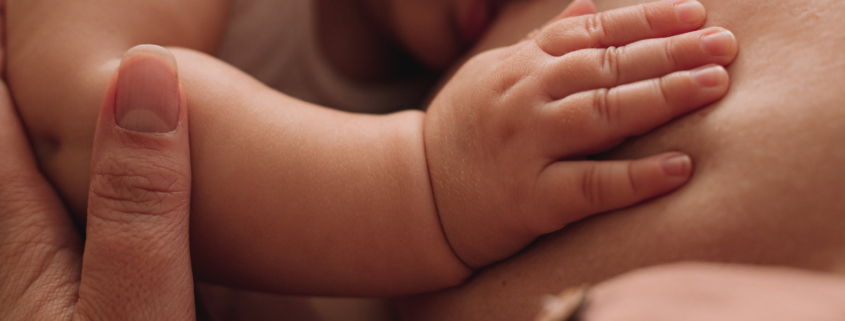10 Interesting Facts About Breastfeeding
Breastfeeding is a fantastic gift. It nourishes your child, helps you bond, and even has benefits for your own health. No wonder it’s recommended, if you can, to breastfeed at least for the first six months of life, when possible.
But even if we instinctively are prepared to breastfeed, it’s not always an easy ride. If you are unsure about breastfeeding or need to remember why you are trying so hard (for some of us) to breastfeeding your child, here are some interesting facts to encourage you and even surprise you.
1. Breastfeeding Requires Energy
Producing milk requires around 25% of your body’s energy; your brain needs only 20% of your energy to function. This means that depending on your diet, an increase of 500 daily calories is required. And that means weight loss!!
2. The First Days After Birth Your Produce Colostrum
Some new mothers are surprised when they notice that their milk does not look like they imagined. Colostrum is your first milk, a unique nutritious liquid that you will only produce during the early days after birth. It protects your baby’s intestinal tract with a combination of proteins, calcium, minerals, and those all-important antibodies.
3. Breastmilk Adapts To Your Baby’s Needs
Our bodies are amazing. The milk you produce will satisfy the specific needs of your baby. If you have a newborn, nutrients will vary from the milk a mother of a 9-month-old. It also adapts to hydrate your baby during the day and across seasons, which means that your milk will have a more significant proportion of water during the summer.
4. Breastmilk Provides Immunity
One of the most important facts about breastfeeding is the role that it plays in protecting your baby. Through your milk, white blood cells make their way to your baby bloodstream to help them fight infections. If your baby becomes sick, the number of those cells will increase.
In the first year of life, immune factors are higher, but your toddler will receive higher Lysozyme levels by the second year of breastfeeding. This antimicrobial enzyme protects from salmonella, E. coli and promotes a healthy intestinal flora.
5. Breastmilk Exposes Your Baby To New Flavours
Your diet can change the taste and smell of milk. Ideally, you should consume healthy and diverse food. Exposing your baby to new flavours will help them accept food when you introduce solids, and the probabilities of having a picky eater can decrease.
So if you believed that a balanced diet was only necessary during pregnancy, it’s equally important to look after your body and provide quality milk to your newborn while nursing.

6. Breastfeeding And Hormones
Many hormones come into the picture while you breastfeed. Some help you bond with your baby and ease anxiety, like prolactin and oxytocin. Serotonin makes your baby sleepy. Others like thyroxin help your baby intestine to mature.
7. There Are Benefits For Mums Too
Breastfeeding can be challenging and exhausting. You have probably read the many ways your baby will benefit from breastmilk, but did you know your chances of developing breast cancer, heart disease, ovarian cancer, stroke, and osteoporosis decrease? And the longer you breastfeed, the higher the benefits.
Nursing mums also recover from postpartum quicker; their uterus will return to its pre-pregnancy size faster than non-breastfeeding mums. It also helps reduce postpartum blood loss.
8. One Breast Produces More Than The Other
Statistically, a women’s right breast will produce more milk than the left breast, even if left-handed. Uneven production has many reasons, but it is not something to worry about. Perhaps milk ducts are larger on one breast, surgeries and injuries also affect production. Your babies preference for one breast can also be the cause.
If your baby feels more comfortable on one breast, it will trigger a higher production and leave the other unattended and cut back production.
And did you know that your baby only removes less than 70% of the available milk from each breast? So do not stress about emptying your breast each time you feed your baby. Your baby will let you know when they are full and have had enough.
9. Size Does Not Matter!
There is a common assumption that bigger breasts mean higher milk production, but that is not true. The size of your breast does not determine how much milk you produce. The amount of milk you produce depends more on your baby’s demand than the size of your breast. The more milk your baby drinks, the more production your body will release.
And now that we are talking about size, having implants also does not affect your milk production or breastfeeding possibilities. Breast implants are usually placed under the chest muscles, behind the milk glands, which keeps milk production possible.
10. Breastfeeding Saves You Money And Time
Perhaps you have not thought about it, but breastmilk is free, kind of. You need “fuel” to produce it, but you already eat every day! The cost of formula and bottles can cost a small fortune in the first year of life, depending on the brand you choose. And needless to say, the amount of time that is cut out in sterilizing bottles is incredible.
Just pop your baby on the breast anytime and anywhere.
In The End
There are many reasons to consider trying breastfeeding, and although there are so many benefits, many mothers can not breastfeed. It’s not for everyone; it can be painful, stressful, or not adapt to your lifestyle.
I personally couldn’t breastfeed. I was lucky enough in the beginning to give my daughter colostrum, but after that, I panicked. I was terrified she would starve. And I think that the stress did not help, feeling pressure to try and produce milk to feed her.
I felt a failure because I could not provide her with all the natural goodness contained in breastmilk.
But on the plus side, it did give my husband a chance to bond with her early on too. Allowing him the opportunity to feed her at an early age and give me a little rest at the same time.
So I guess there are benefits in each system.
But if you can do it, and for some mothers, it just happens naturally. Remember that it is recommended to breastfeed exclusively for the first six months of life and continue with solids and breastmilk, preferably for two years. But everyone’s lifestyles are different. We are all unique, and you should decide according to you, and your babies need.
At my studio in Lanarkshire, Glasgow, I have the perfect environment for you to have some beautiful newborn portraits while having the opportunity to breastfeed in a relaxing and private space.
If you are interested in capturing the special milestones in your babies first year, get in touch and ask away with any questions that you have. I would love to hear from you,
Paula x




Leave a Reply
Want to join the discussion?Feel free to contribute!